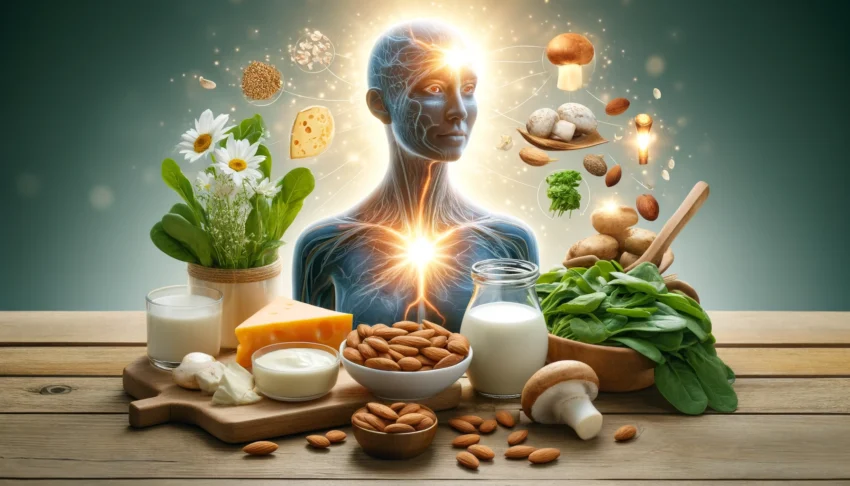Vitamin B2, also known as riboflavin, is a vital nutrient that plays a key role in maintaining human health. This water-soluble vitamin is part of the B-complex group and is essential for various metabolic processes in the body. Here’s a straightforward overview of what vitamin B2 does, where you can find it, and its use in supplements.
Functions of Vitamin B2
Vitamin B2 is crucial for energy production. It helps convert carbohydrates into adenosine triphosphate (ATP), which the body uses for energy. It’s also integral in the metabolism of fats and proteins. Riboflavin plays a significant role in:
- Maintaining Skin and Eye Health: Vitamin B2 is essential for the maintenance of healthy skin, lining of the digestive tract, blood cells, and other body tissues. It also helps to maintain good vision by protecting the eyes from oxidative stress and may improve eye health by preventing cataracts.
- Antioxidant Protection: Riboflavin acts as an antioxidant that fights free radicals (unstable atoms that can damage cells), which may help reduce the risk of chronic diseases.
- Enhancing Other Nutrient Effects: It aids in the activation of other vitamins such as B6 and folate, which are necessary for optimal health.
Foods Rich in Vitamin B2
A variety of foods contain vitamin B2, making it accessible through a balanced diet. Here are some of the best sources:
- Dairy Products: Milk, cheese, and yogurt are excellent sources of riboflavin.
- Eggs: Particularly the egg whites are rich in this vitamin.
- Meats and Fish: Beef liver, lamb, and oily fish like mackerel contain high amounts of vitamin B2.
- Nuts and Seeds: Almonds, sesame seeds, and sunflower seeds are good sources.
- Green Vegetables: Spinach, asparagus, and broccoli provide riboflavin.
- Whole Grains: Brown rice, whole wheat, and oats include some levels of vitamin B2, although milling can reduce riboflavin content.
Supplements
While most people can meet their riboflavin needs through a well-rounded diet, certain groups might require supplements. These include vegetarians or vegans, people with certain medical conditions that affect nutrient absorption, and older adults who may have dietary restrictions. Vitamin B2 supplements are usually offered in the form of riboflavin tablets or as part of a B-complex or multivitamin supplement.
When considering supplements, it’s essential to consult with a healthcare provider to determine the right dosage and ensure that the supplement doesn’t interact with any medications or other vitamins you might be taking.
Conclusion
Vitamin B2 is an essential component of a healthy diet, contributing to energy production, cell function, and the maintenance of skin and eye health. Consuming a diet rich in diverse foods can typically cover the body’s riboflavin needs. However, in cases where diet alone might not suffice, supplements can help fill the nutritional gaps. As always, personal healthcare advice should be sought to tailor dietary and supplement needs to individual requirements.

